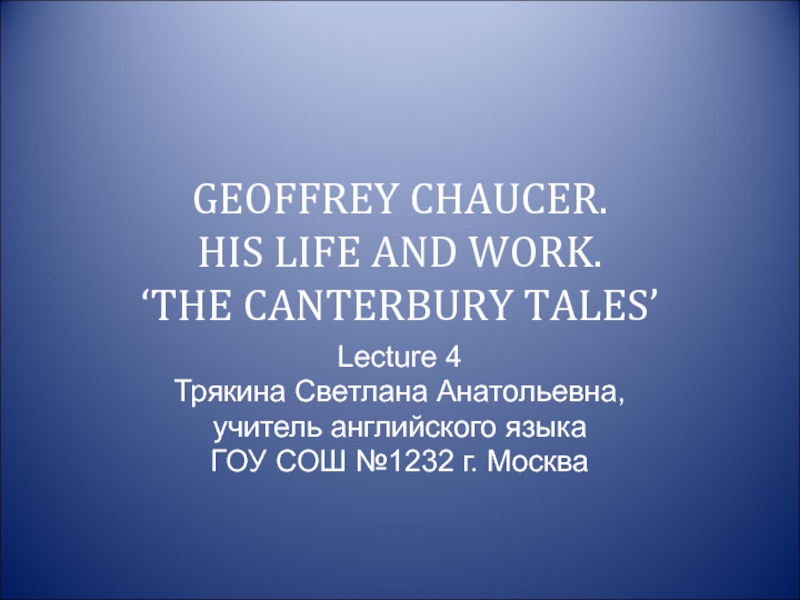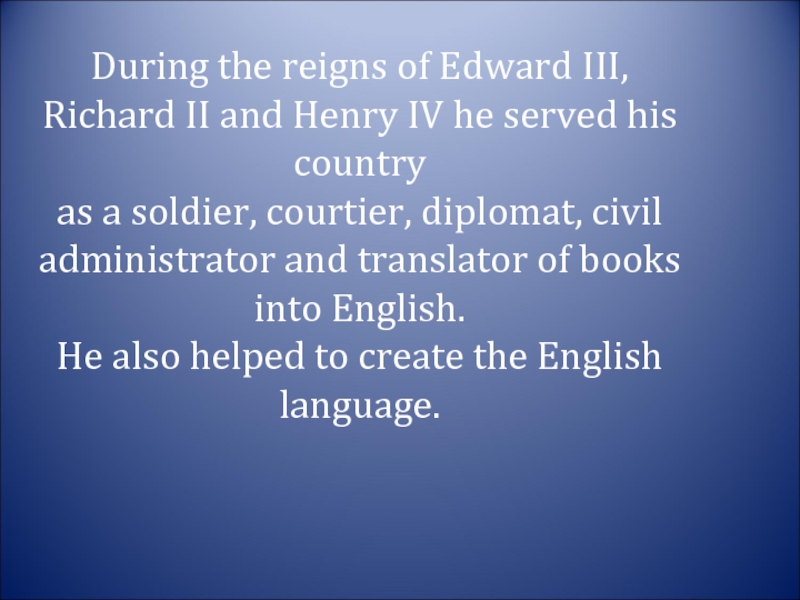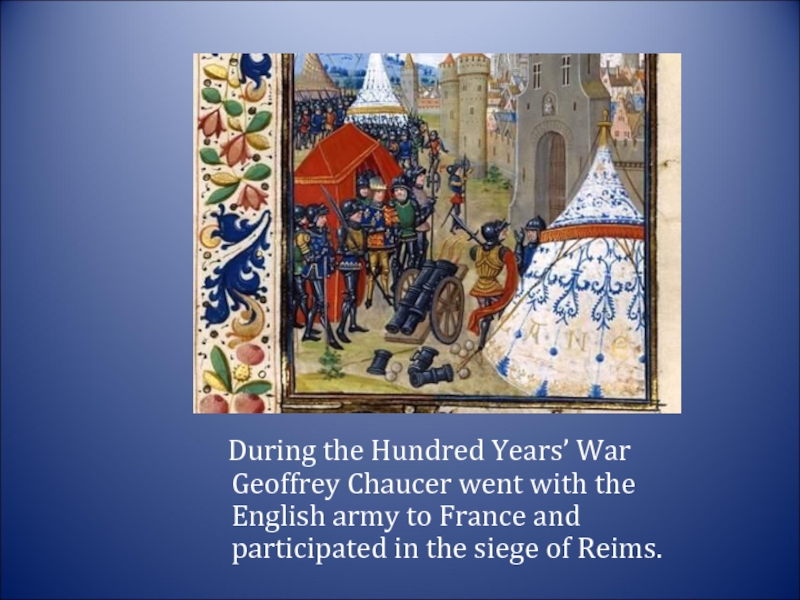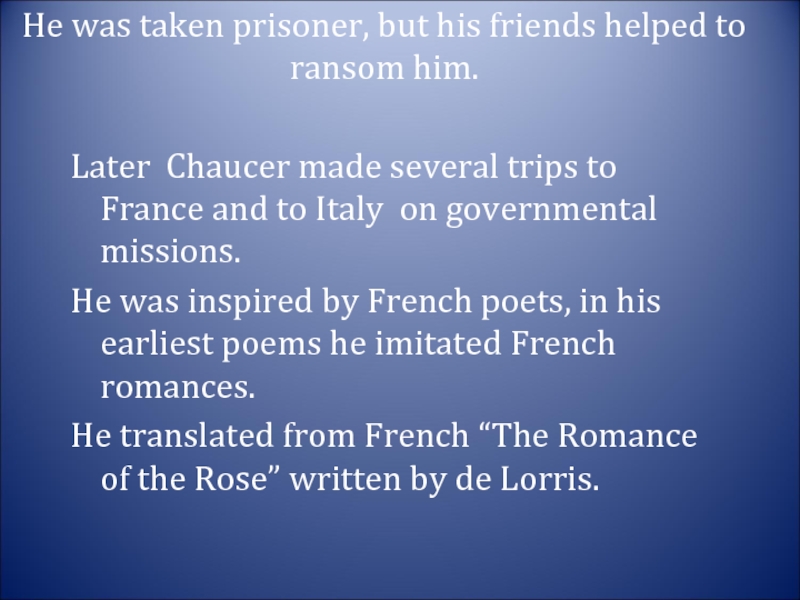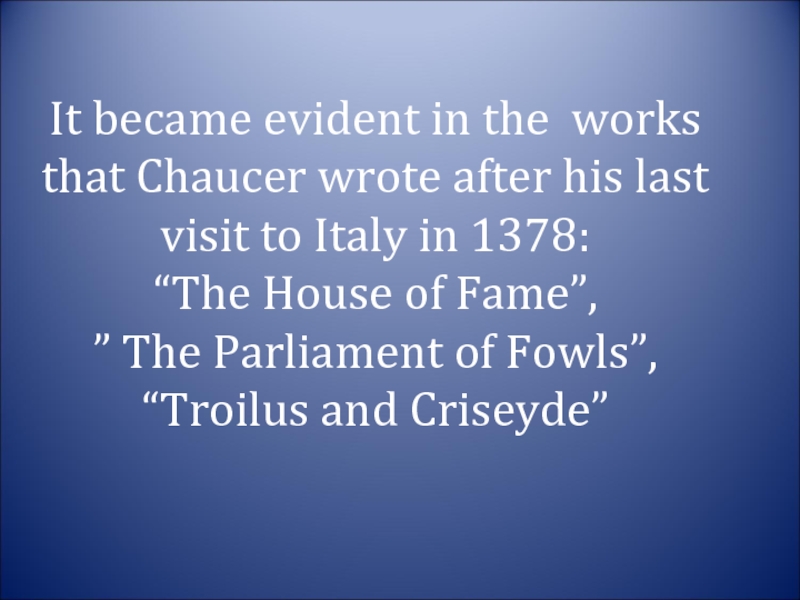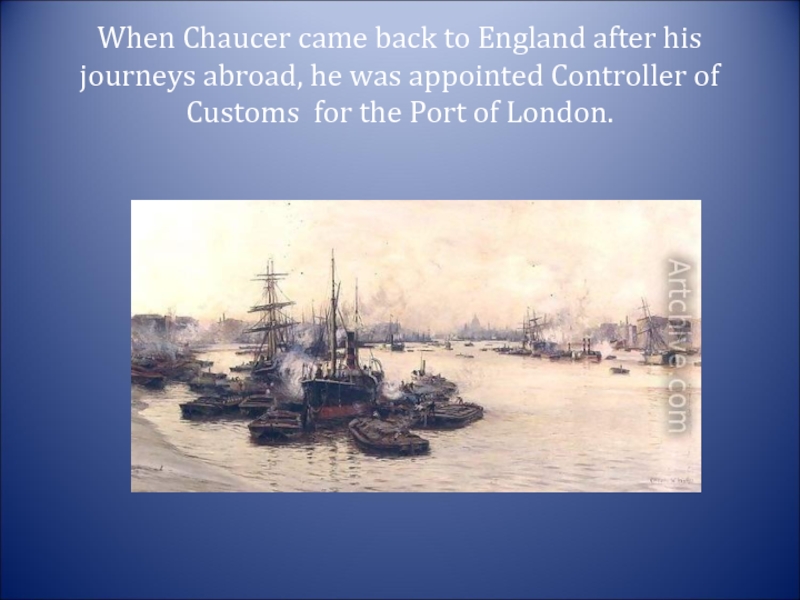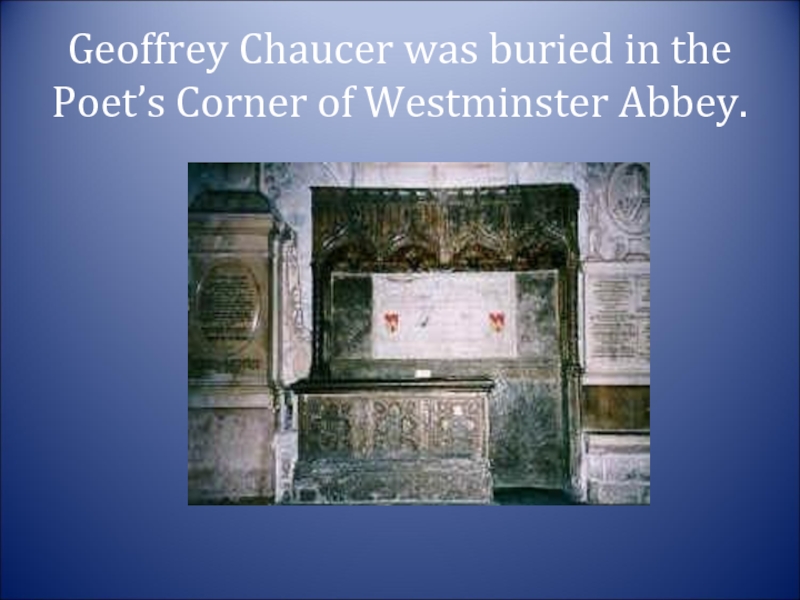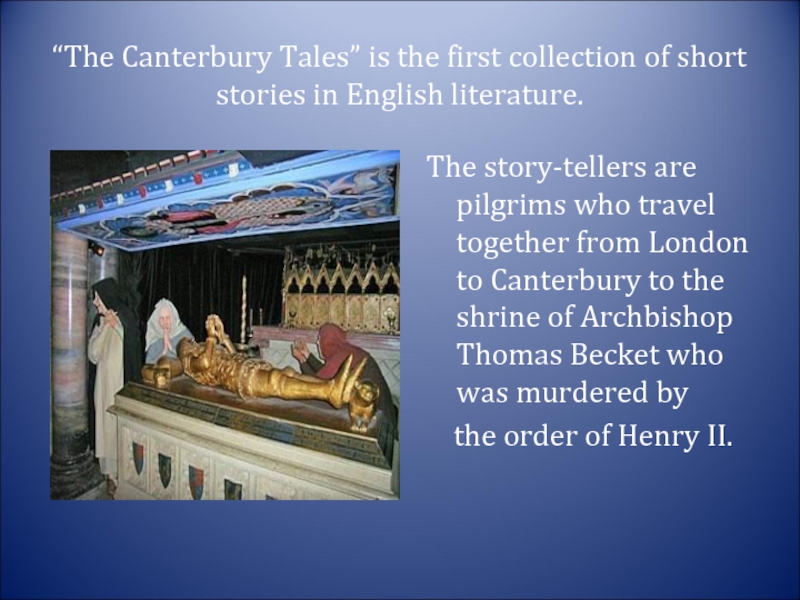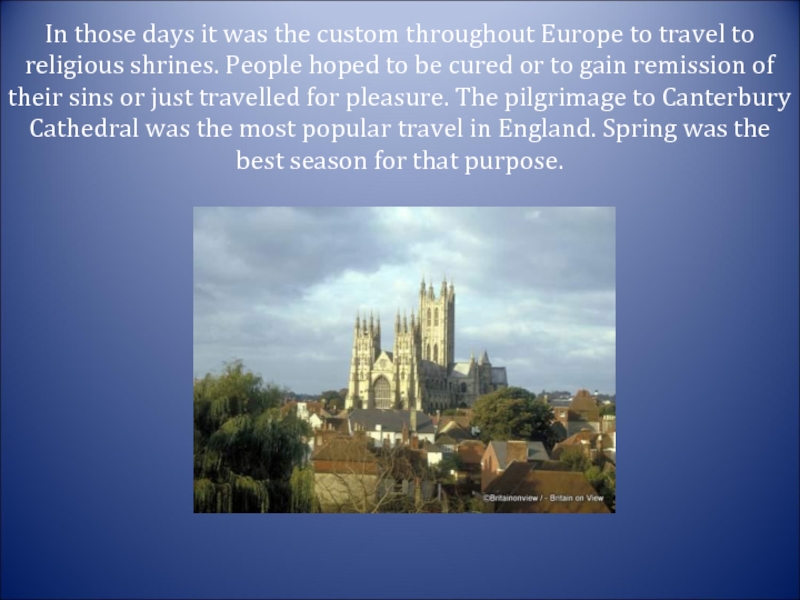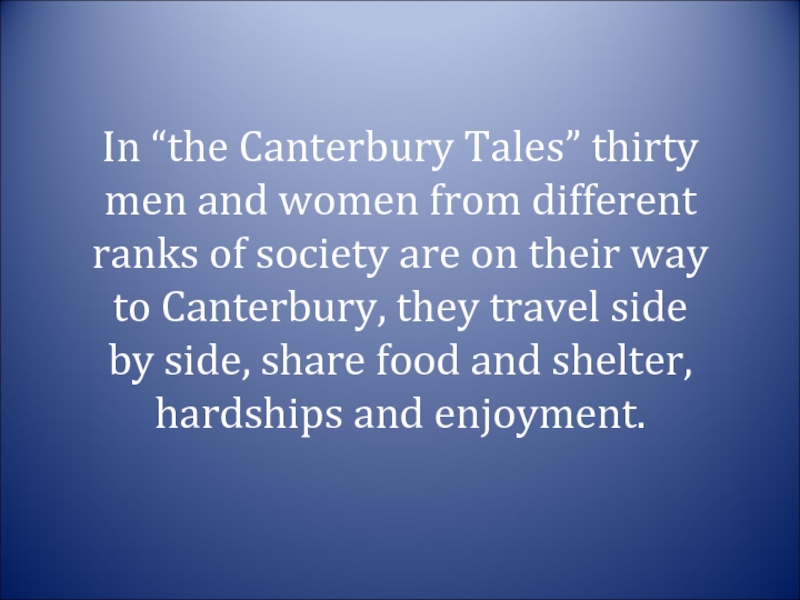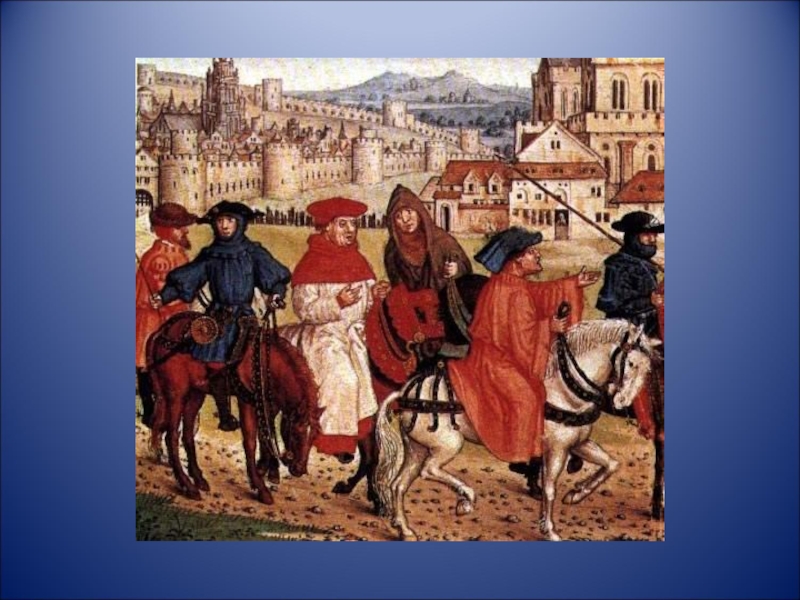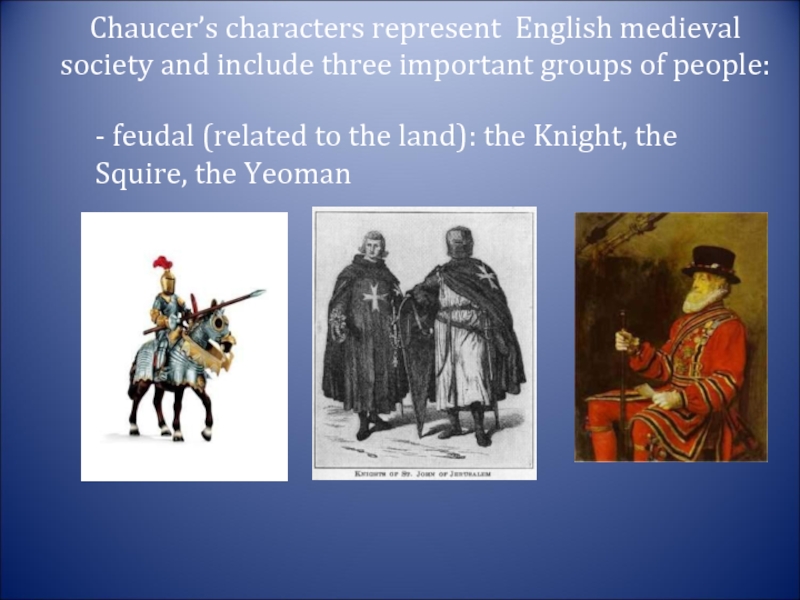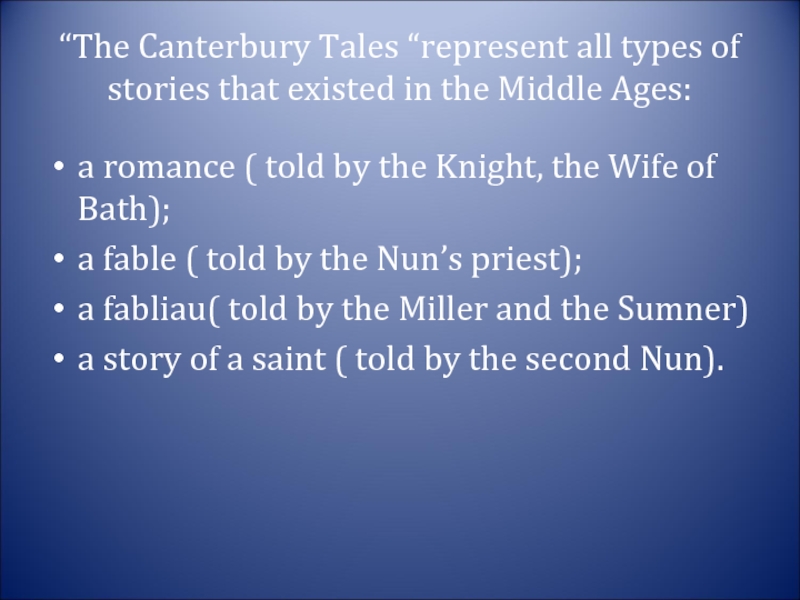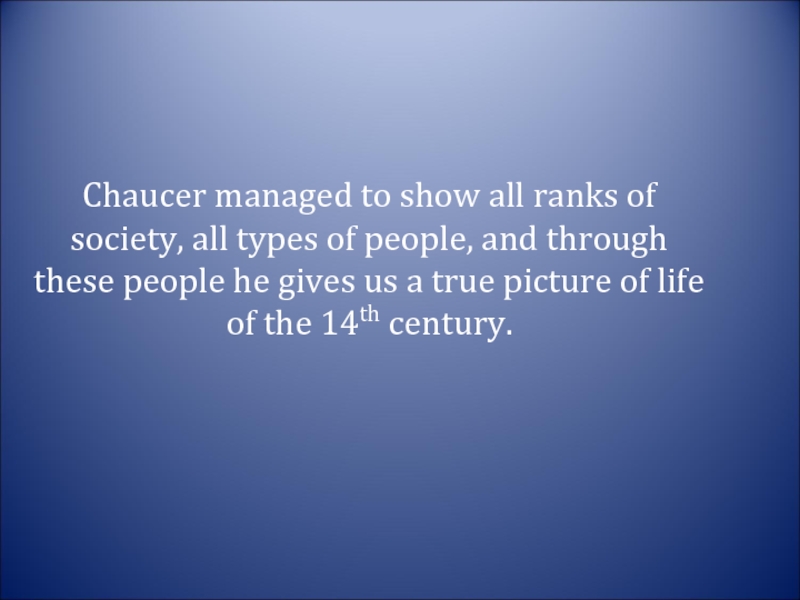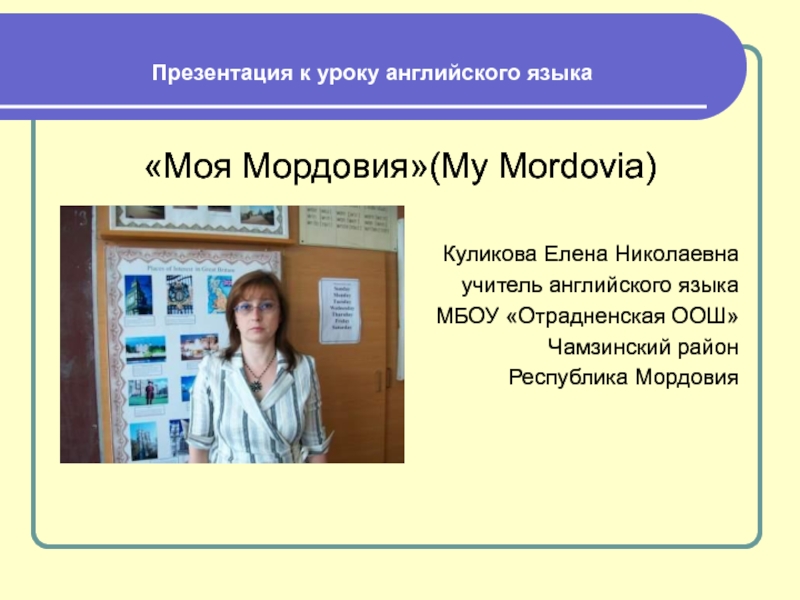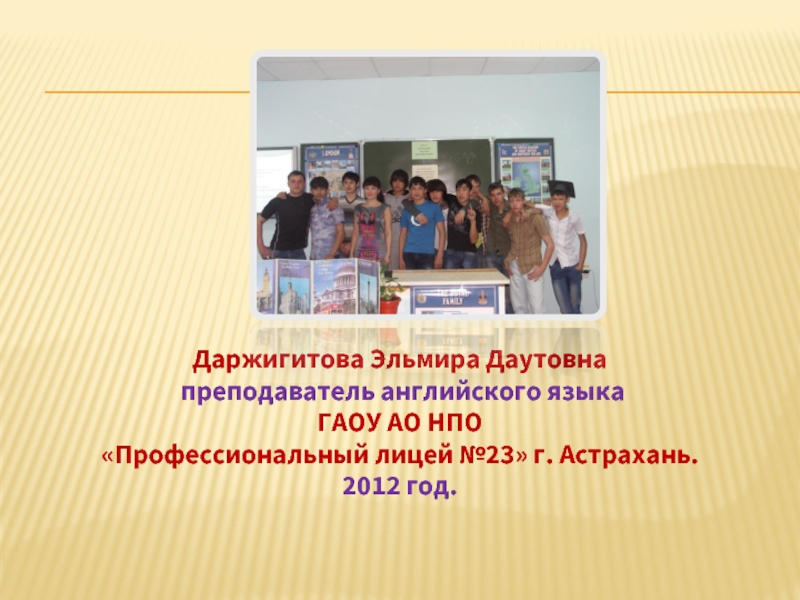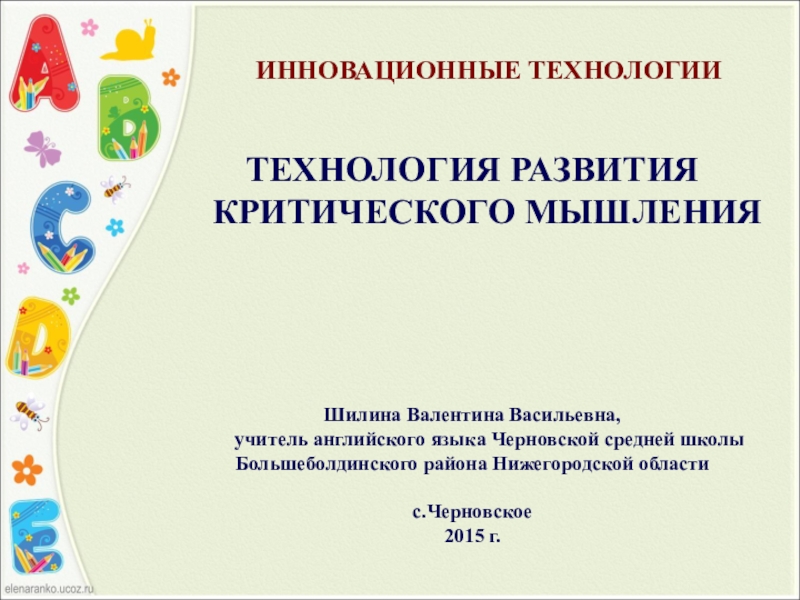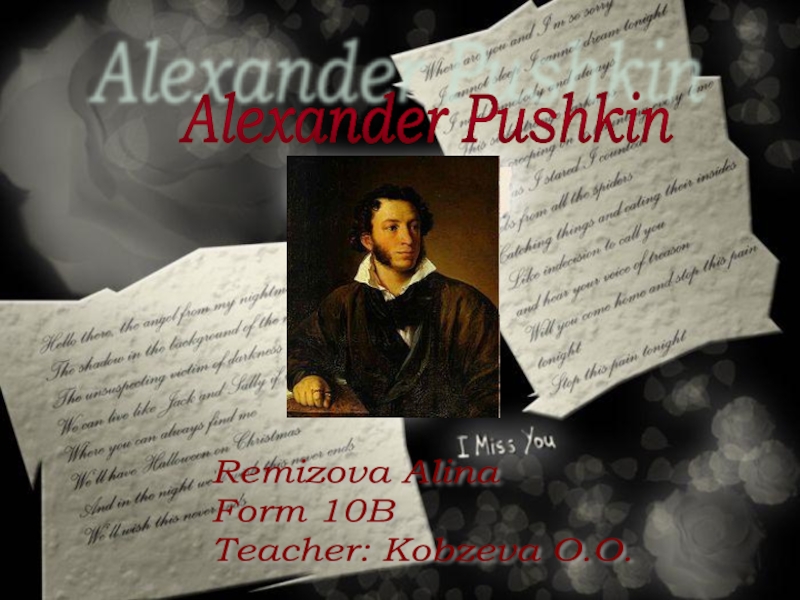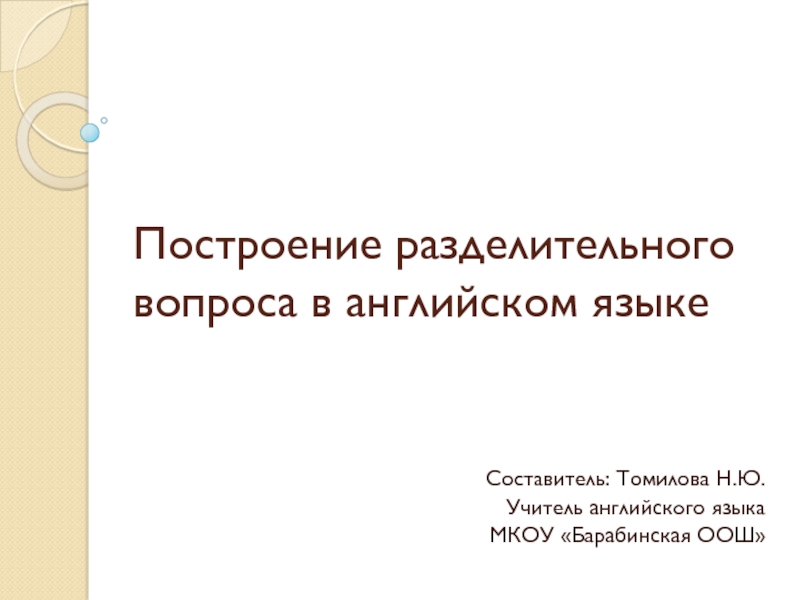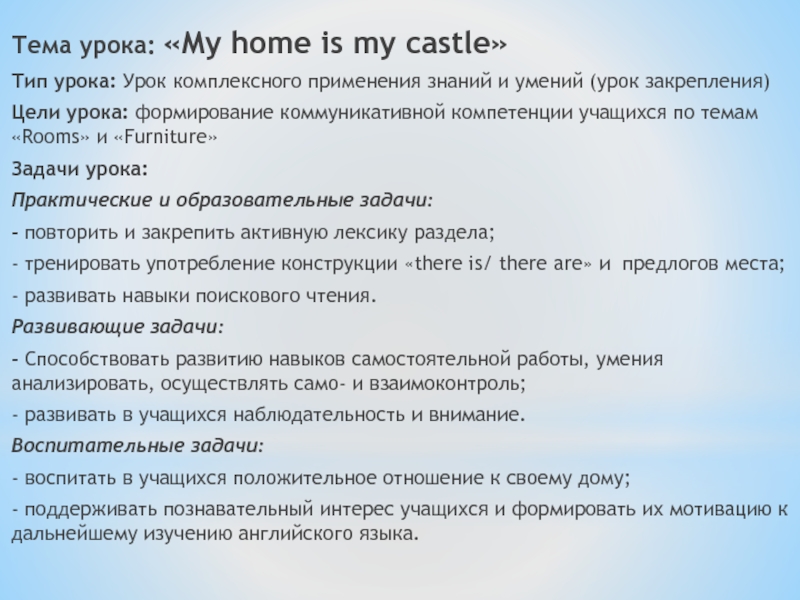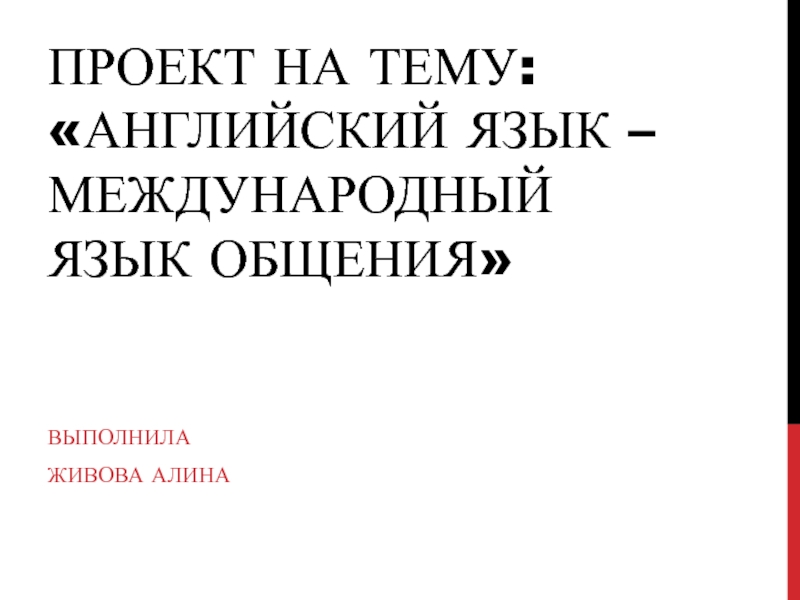Разделы презентаций
- Разное
- Английский язык
- Астрономия
- Алгебра
- Биология
- География
- Геометрия
- Детские презентации
- Информатика
- История
- Литература
- Математика
- Медицина
- Менеджмент
- Музыка
- МХК
- Немецкий язык
- ОБЖ
- Обществознание
- Окружающий мир
- Педагогика
- Русский язык
- Технология
- Физика
- Философия
- Химия
- Шаблоны, картинки для презентаций
- Экология
- Экономика
- Юриспруденция
Geoffrey Chaucer. His Life and Work. The Canterbury Tales
Содержание
- 1. Geoffrey Chaucer. His Life and Work. The Canterbury Tales
- 2. Geoffrey Chaucer is often called “the
- 3. As Geoffrey grew in his household,
- 4. Слайд 4
- 5. During
- 6. During the Hundred Years’ War
- 7. He was taken prisoner, but his friends
- 8. The second period of Chaucer’s creative
- 9. It became evident in the works that
- 10. When Chaucer came back to England after
- 11. Later he was a representative of Kent in Parliament.
- 12. However, these duties were tiresome to
- 13. Geoffrey Chaucer was buried in the Poet’s Corner of Westminster Abbey.
- 14. “The Canterbury Tales” is the first collection
- 15. In those days it was the
- 16. In “the Canterbury Tales” thirty men and
- 17. Слайд 17
- 18. As the pilgrimage takes several days, the
- 19. Chaucer’s characters represent English medieval society and
- 20. -ecclesiastical ( belonging to the church) : the Parson, the Monk, the Prioress
- 21. - urban ( people who live in
- 22. “The Canterbury Tales “represent all types
- 23. Chaucer
- 24. Источники:1. Волосова Т.Д., Геккер “English Literature” ,
- 25. Скачать презентанцию
Geoffrey Chaucer is often called “the father of English literature”.He was born in London about 1340 into the family of a successful wine importer. His father had connections with the
Слайды и текст этой презентации
Слайд 1GEOFFREY CHAUCER.
HIS LIFE AND WORK.
‘THE CANTERBURY TALES’
Lecture 4
Трякина Светлана
Анатольевна,
Слайд 2Geoffrey Chaucer is often called
“the father of English literature”.
He
was born in London about 1340 into the family of
a successful wine importer. His father had connections with the royal court and he was able to place his son as a page in the household of one of King Edward III’s gentlemen.Слайд 3 As Geoffrey grew in his household, he learnt Latin, French
and Italian.
His knowledge of these languages fitted him for civil
service and diplomatic positions, and also prepared him to translate literary works in all these three languages.Слайд 4 Chaucer’s position as a page gave him the opportunity of
getting into contact with the royal family and their distinguished
guests. He soon became a court favourite, and got acquainted with contemporary authors.Слайд 5 During the reigns of Edward III, Richard II and Henry
IV he served his country as a soldier, courtier, diplomat,
civil administrator and translator of books into English. He also helped to create the English language.Слайд 6 During the Hundred Years’ War Geoffrey Chaucer went
with the English army to France and participated in the
siege of Reims.Слайд 7He was taken prisoner, but his friends helped to ransom
him.
Later Chaucer made several trips to France and to Italy
on governmental missions.He was inspired by French poets, in his earliest poems he imitated French romances.
He translated from French “The Romance of the Rose” written by de Lorris.
Слайд 8 The second period of Chaucer’s creative activity was marked by
Italian literary and cultural influence, mainly by three great Italian
poets: Dante, Petrarch and Boccaccio.Слайд 9It became evident in the works that Chaucer wrote after
his last visit to Italy in 1378: “The House of
Fame”, ” The Parliament of Fowls”, “Troilus and Criseyde”It
Слайд 10When Chaucer came back to England after his journeys abroad,
he was appointed Controller of Customs for the Port of
London.Слайд 12 However, these duties were tiresome to the poet, he longed
for leisure to write.
Finally he retired and devoted his time
to his literary work. In 1387 he started writing his masterpiece, “The Canterbury Tales”. The work was not finished because of the poet’s death in 1400.Слайд 14“The Canterbury Tales” is the first collection of short stories
in English literature.
The story-tellers are pilgrims who travel together
from London to Canterbury to the shrine of Archbishop Thomas Becket who was murdered by the order of Henry II.
Слайд 15 In those days it was the custom throughout Europe to
travel to religious shrines. People hoped to be cured or
to gain remission of their sins or just travelled for pleasure. The pilgrimage to Canterbury Cathedral was the most popular travel in England. Spring was the best season for that purpose.Слайд 16In “the Canterbury Tales” thirty men and women from different
ranks of society are on their way to Canterbury, they
travel side by side, share food and shelter, hardships and enjoyment.Слайд 18As the pilgrimage takes several days, the inn-keeper suggests that
each of them should tell his/her story, and the one
whose tale is the best, will earn a festive supper at his inn.Слайд 19Chaucer’s characters represent English medieval society and include three important
groups of people:
- feudal (related to the land): the Knight,
the Squire, the YeomanСлайд 22 “The Canterbury Tales “represent all types of stories that existed
in the Middle Ages:
a romance ( told by the Knight,
the Wife of Bath);a fable ( told by the Nun’s priest);
a fabliau( told by the Miller and the Sumner)
a story of a saint ( told by the second Nun).
Слайд 23 Chaucer managed to show all ranks of society, all types
of people, and through these people he gives us a
true picture of life of the 14th century.Слайд 24Источники:
1. Волосова Т.Д., Геккер “English Literature” , Ч.1,М., «Просвещение», 1977г.
2.
Кукурян И.Л. “An Outline of English Literature” M., изд-во МГУ,
1997.Иллюстрации:
http;//www. ablongman. com
http://www.maisonstclaire.org/timeline/ 1356 html
http;//www.intergate.con/ canu
http;//www. goldenls.com/wawa php q=petrarch-painting
http;//www.myartprints.com/a/
http://www/artchive.com/web gallery
http://www.bellona.org./articles/.htm
http:www.primrosecottageholiday.co.uk/page102. htm/
http:// www.schwarzaufweiss.de/england/canterbury.htm
http://www.search.com/reference/chaperon
